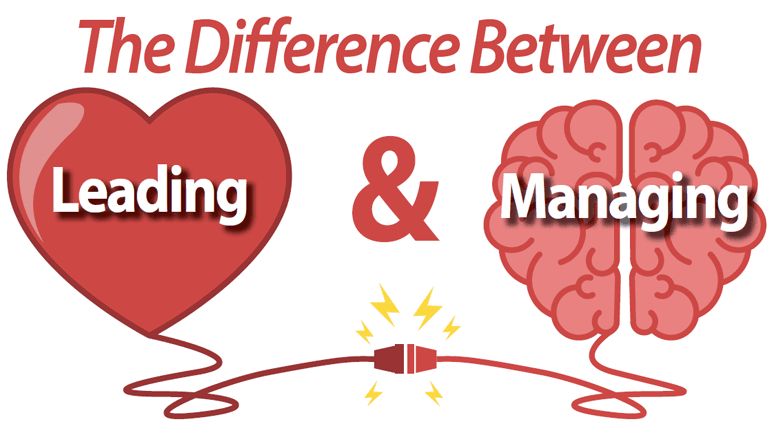Leaders are the heart of a store. Managers are the brains.
Understanding the difference can help your business soar.
Ask a furniture retailer their thoughts on the difference between leading and managing, and you’ll find not only does everyone have their own ideas, but they also possess a very strong opinion on how the two influence a store’s success.
Creating a vision
One way many furniture retailers view the relationship between leading and managing is by viewing the leader as the individual with a vision—the clear view of the bigger picture with the manager following the direction of that vision while executing more technical processes.
HFA member Mitchell Stiles, vice president of dealer operations for WS Badcock Corporation with stores in eight states in the South, likens the relationship between the two to that of an air-traffic controller and an airplane pilot.
“I know it’s an odd analogy but there are some similarities,” he says. For instance, the air traffic controller has a much different view of the runways than the individual pilot, and that vision allows them to guide the planes. Meanwhile, it’s the pilot’s job to follow the direction and manage the aircraft safely. “The point is, a leader must have a vision and a will to see that vision through,” says Stiles. “It’s his or her duty to empower those managing to make the right decisions with the core values of the vision always at the forefront of the transaction.”
Ultimately, as the fifth-generation family member working in a 113-year-old business, Stiles feels that a good leader is one who has humble roots and puts the interest of others at the forefront of their thought process. “It’s called servant leadership, and there is a lot of good information out there on the subject if anyone wants to seek it,” he says. He describes a good manager as someone who executes on a consistent basis while being fair and equitable to the people he or she manages.
“Yes, someone can be both because more often than not leaders manage people,” says Stiles. “Every action in the business they take has an effect somewhere down the (organization) chart.”
Embracing change
For others in the world of furniture retail, leading and managing in today’s environment demand a willingness and capacity to embrace change. Think of leading and managing like building a fire. You have to keep feeding the fire with wood if you want to maintain the heat and light.
So even if you have a great sales team, a great month in terms of profit, it won’t ensure that the next month will be the same if you aren’t continually motivating and inspiring your sales team, i.e. “feeding” them with new ideas and ways to manage the various processes and systems.
HFA member Andrew Tepperman, president of Tepperman’s a 91-year-old family business with five locations in southwestern Ontario, also touted the idea of servant leadership when asked to describe his thoughts on leading versus managing.
“We follow a philosophy—servant leadership—that no matter what you do, at whatever level, you are responsible for going down to the frontline teams to find out what needs to be done differently and use that data to create change. It’s leading change through the ideas of the people who report to you. Telling people what to do is old-fashioned, and you don’t get the best of people doing that.
“The textbook point of view would be ‘to manage’ is about tactics—follow this process, this direction—but that’s not reality,” he says. “I don’t find a lot of things static, change is happening faster than ever. Maybe 20 years ago you could rely on an executive to direct change, but today it’s different.”
As an example, Tepperman cites the introduction of tablets onto the sales floor. “You can’t as a manager, go to your team and say,
‘You’re going to use this tablet.’ You have to go to your people and talk about the whys—here’s the root cause of why we are doing something different,” he says. Continually asking questions and making sure that any change is as painless as possible is key, he finds. “This is why we see so much crossover between leading and managing today, partly due to the expectation that everyone can do both,” he says. “We don’t have the same defined roles we did decades ago.”
Leading by example
Finally, there’s the philosophy that everyone has a leadership role if a retail furniture business is to be successful in the 21st century.
Ela Chavez, executive vice president of learning and development for HFA member El Dorado Furniture’s 14 locations in South Florida, feels that leadership is like the human aspect of managing. “We develop leaders with high management skills,” she explains. “Other places focus on manager skills then develop leadership skills; we do the reverse. We go for leaders, we prefer leaders and we start from the cradle.”
Mario Morales, senior general sales leader for El Dorado Furniture, adds, “Our managers are called sales leaders. In every position in our company where you supervise you will be a leader, and we expect all supervisors to act as leaders. A manager, you tell them what to do, you guide them to do something specific— the way I see it, a manager manipulates people to do what you want. A leader shows by example, leads by inspiring, encouraging, motivating. Treat them like friends, even family, not like employees, and the end result of that is huge.”
Miguel Valle, store administrator for El Dorado’s store in Cutler Bay, says, “At the store level, you definitely want to have a leader, but you also need management skills to carry out the vision.”
Valle recommends discussing the vision with staff as a leader, before moving on to a discussion of the process for carrying out that vision. “The vision is being the leader, while how you are going to do it is managerial.”
Chavez believes effective employees have to be both a manager and a leader. “A good leader has management skills, and a leader inspires. They have imagination, they walk their talk, and they have to have great communication skills. They have to listen, they delegate, they engage.”
Meanwhile she feels that on the manager side of the equation the person needs to have the tenacity to do whatever it takes to achieve the goal, ensuring changes are implemented, as well as planning for the future, while keeping everything organized and coaching others to improve their performance.
Chavez is the first to acknowledge this is not an easy task. “A good leader has to have management skills. Management is a process, while the leader does more of the logistics, more of the vision, but they’re all related. We want our leaders to be caring, to make people a priority, to be human—people-oriented versus results-oriented. Then the results will come.”
Personalizing service
No matter a retailer’s thoughts on leading versus managing, the truth universally held is today’s consumer demands personalized service, and the furniture retailer that fails to deliver in that regard will not be successful.
“When customers walk in, they have to be treated like gold, like family,” says Morales. “You have to offer personalized service. Sometimes it’s hard to get that from an average sales associate who is used to selling and moving on.”
Morales says the selling process is just the beginning. “When the customer leaves our store, there is a lot of follow up, and you have to be up for the challenge,” he says.
To meet and exceed that level of personal customer service, El Dorado Furniture focuses its training department on personal expectations and personal touch from the very beginning of the training process for a sales associate.
Valle adds, “During our initial training, we’re dedicating more time on interpersonal relationships, and we have various events in the company that guarantee we are bringing back customers.” He also cites the challenge Millennials represent. “They already know what they want, and they expect automatic results, and in the furniture industry the delivery process can be sluggish.”
To combat this disconnect, Valle said El Dorado is focusing on providing more information and the technical ability for consumers to track items.
Perhaps the quote that begins the performance reviews for Tepperman’s senior leadership team sums up the future of the discussion about the differences between leading and managing: Leaders are responsible for the company’s future. Leaders should not be focused on managing the company as it is today, but rather on creating a fundamentally new and better company.











